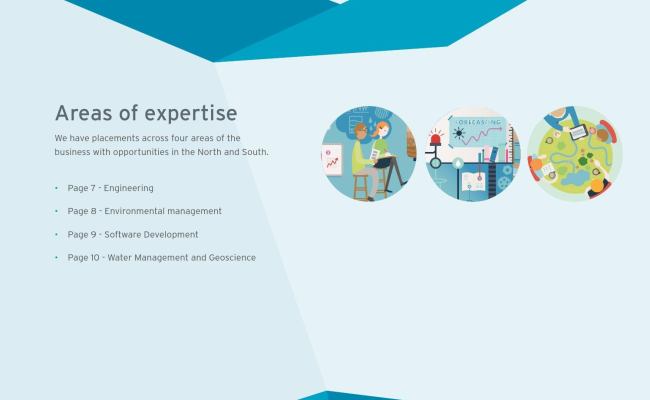
As many organizations seek to improve their productivity and reduce costs, there is an increasing demand for principal consulting. Consultants can assist organizations in implementing new technologies and expanding their reach to new markets. A bachelor's degree is usually required to become a principal consultant. However, many employers prefer applicants who have an MBA. This two-year program includes coursework and a research project. Here are some ways to get started in this industry.
For principal consultants, the job outlook
The job outlook for principal consultants is generally positive, but there is a wide range of job duties. Principal consultants work in project management and team management. They also help companies with business challenges. They might also be involved in thought leadership and business growth work. Although they are often part of a team, principal consultants should be able manage their own projects and work on their own. The following are three trends to look out for in your career.
Education and experience: Candidates typically need a bachelor's degree to become a principal consultant. Many potential principals have a master's or similar degree in business management. Employers prefer candidates who have worked in relevant fields. Organizations prefer candidates with at the least a master’s degree. A doctorate is also common. The average salary for principal consultants is $80630 per year.

Education required
A principal consultant is an executive position at a consulting company. A principal consultant's job duties include supervising the work of junior staff members and providing leadership and guidance to the rest of the team. To become a principal consultant, you must have several years of consulting experience and a bachelor's degree in a related field. As they may help you to develop leadership skills, you might also qualify as a principal advisor.
A principal consultant is often responsible for recommending effective strategies to improve the company's bottom line. A principal consultant may choose to specialize in one industry, such as technology or health care. This will help you set yourself apart from other consultants. The most common industries are finance, marketing and human resources. The specific type of education you pursue will depend on the industry you hope to enter. Principal consultants will often have industry-specific training, in addition to a bachelor’s degree.
Earning potential
As a principal consultant, an experienced consultant can earn more. Clients often seek out principal consultants who have more experience than 10 years. Principal consultants need to have experience. They may also require additional training to stay current with regulatory changes and technological advancements. The annual average salary for a consultant can be $80630 but the earnings of the most successful executives can reach $163470. This article explains how earnings can be affected by principal consultants.
The median salary of a Principal Consultant varies depending on their experience and location. ZipRecruiter reports that an entry-level principal consultant can earn as much as PS82,500 annually. A mid-career Principal Consultant can earn an average of Rs16.7 Lakhs per year. A senior Principal Consultant may earn up to $180,000 per year. The earning potential of a principal consultant who has more than 20 years experience may be higher than the national average.

Career path
Being a principal consultant is a job that requires special skills. Many consultants have general knowledge. However, some consultants have industry expertise to stand out from the rest. Principal consultants who are interested in becoming certified in certain business areas will benefit greatly from their increased knowledge and experience. These certifications are also an excellent way to showcase your expertise and stand out from other consultants.
A principal consultant is responsible for managing all phases of projects. They often tackle difficult business problems. As a principal consultant, you will have to oversee the firm's strategy planning and new client development.
FAQ
Why would a company pay a consultant?
Consultants offer expert advice to help improve your business' performance. They aren't there to sell your products.
A consultant assists companies in making better decisions by offering sound analysis as well as suggestions for improvement.
Consultants often work closely alongside senior management teams to help understand what they need to succeed.
They provide coaching and leadership training for employees to enable them to achieve their peak performance.
They might advise businesses on how to reduce costs, streamline processes, or increase efficiency.
Consulting is it a job?
Consulting is not only an entry-level profession for those looking to make fast money, but it's also an excellent way to acquire valuable skills that you can apply throughout your career.
Consulting offers many opportunities in project management as well as business development, strategy and training. You might find yourself working on projects ranging from small start-ups to large-scale international corporations.
Consulting allows you to learn and improve your skills while also gaining experience in many industries. This could be learning to manage people, write proposals and manage budgets, analyze data and create presentations, or conduct market research.
Is it necessary to pay taxes on consulting income
Yes. You will have to pay taxes on your consulting profits. The amount of your earnings per year will determine the tax payable.
You can also claim expenses if you are self-employed. This includes rent, childcare, food, and transportation.
However, you cannot deduct interest payments from loans, vehicle repairs, or the cost for equipment.
If you earn less than PS10,000 per year, 25% can be claimed back.
You might be taxed even if you make more than the threshold depending on whether your income is contractor or employee.
Employees are generally taxed through PAYE (pay as you earn) and contractors through VAT.
How can I find clients for my consulting business?
The first step is to find an area you are passionate about. This could be social media or public relations. However, it must be something that you are passionate about. You may need to start small and find a niche market like web design. Once you have identified the niche, be sure to fully understand its characteristics. What problems does this solve? Why should people use it? How can you help them?
It is also possible to approach businesses directly.
If all else fails offer your services for free at networking events and conferences. It's a great way to get in touch with potential customers, without spending too much on advertising.
Statistics
- 67% of consultants start their consulting businesses after quitting their jobs, while 33% start while they're still at their jobs. (consultingsuccess.com)
- Over 50% of consultants get their first consulting client through a referral from their network. (consultingsuccess.com)
- My 10 years of experience and 6-step program have helped over 20 clients boost their sales by an average of 33% in 6 months. (consultingsuccess.com)
- So, if you help your clients increase their sales by 33%, then use a word like “revolution” instead of “increase.” (consultingsuccess.com)
- "From there, I told them my rates were going up 25%, this is the new hourly rate, and every single one of them said 'done, fine.' (nerdwallet.com)
External Links
How To
What does a typical consultant's day look like?
Depending on what type of work you do, your typical day may vary. But, in general, you will spend your time researching, planning and meeting new clients.
You'll often have meetings with clients where you can discuss issues and solve problems. These meetings can be held over the telephone, online or face-to face.
Also, proposals are documents that outline your ideas or plans for clients. These proposals will be presented to clients by you and a mentor.
After all the preparation, you'll need to start creating content. Writing articles, designing websites, editing photos or conducting interviews are just some of the options.
You may need to conduct research depending on the scope of your project to find relevant statistics and figures. For example, you may need to find out how many customers you have and whether they are buying more than one product or service.
Once you have all the information needed, it is time for clients to see your findings. You may give your findings orally or in written form.
After the initial consultation, it is important to follow up with clients. You might contact them regularly to check on their progress or send them emails to confirm they have received your proposal.
Although this process can take time, it is important to stay focused and build good relationships with your clients.